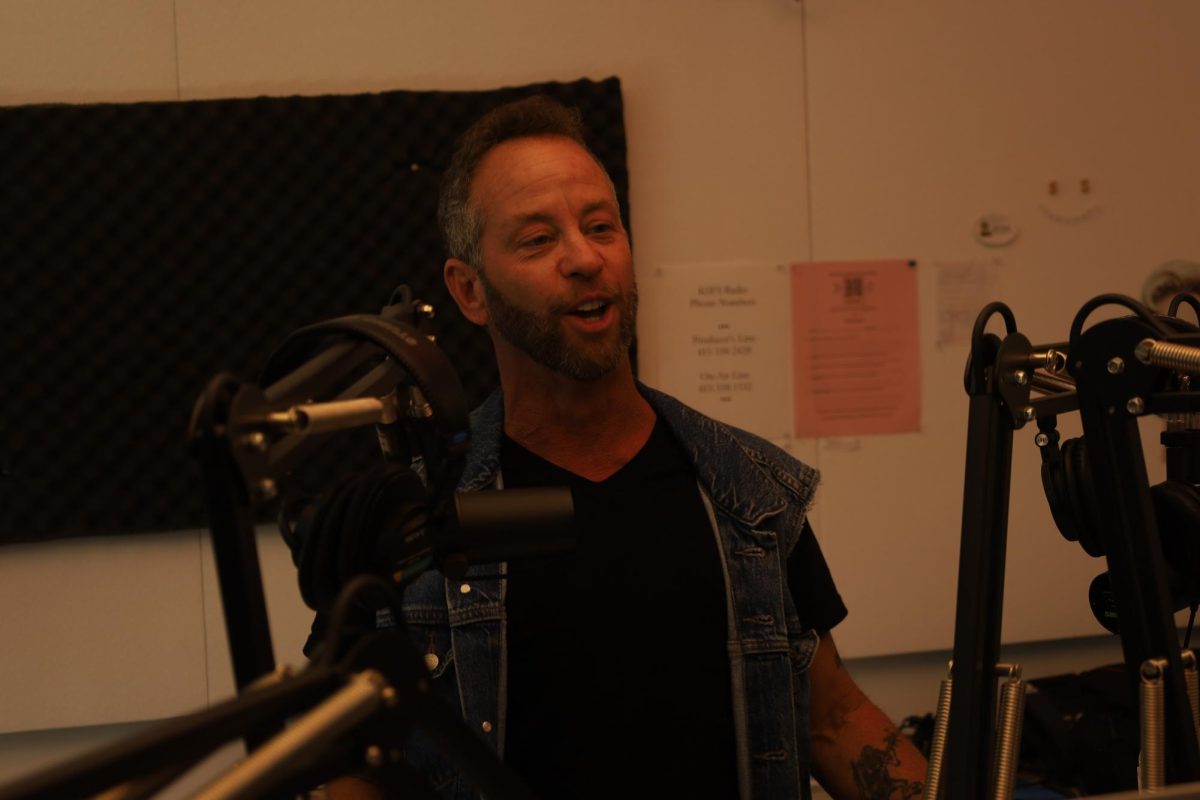For those who were relaxing in Malcolm X Plaza, the sound of chanting started out barely audible. A brief moment later, observers were witness to a crowd of students and teachers marching and shouting different slogans.
“Calling out the violence of the racist police, we ain’t gonna stop till’ our people are free,” students chanted as they marched into Malcolm X Plaza. “I can hear my people crying ‘I can’t breath.’”

The event, titled “By Any Means Necessary: Continuing the Fight for Freedom,” was the 21st annual incarnation of SF State’s celebration of Malcolm X’s May 19th birthday, which was celebrated early on April 30. Students honored Malcolm X by highlighting current race relations in this country, according to Brittany Moore, founder of SF State’s Black and Brown Liberation Coalition.
The campus celebrated the event with slam poetry from professor Javon Johnson, a speech by Africana studies lecturer Amar Casey and students’ recital of Malcolm X quotes, intermixed with dancing in the plaza.
“(Malcolm X) is still relevant today because we’re still dealing with the same issues of structural oppression,” Moore said. “He’s a good reminder of the fact that you have to fight for your freedom.”
Moore said she thinks students know Malcolm X’s name, but not who he was and especially not the nuanced version of him.
“We’re taught a very flatlined story of Malcolm X,” Moore said. “Unless you have a desire to know your history not from a white Eurocentric point of view, then you only know that flatline story of him.”
Historians and journalists have traditionally portrayed Malcolm X as a militant person, and although that was not everything he was, it was one of his pivotal roles, according to SF State history professor Mark Sigmon.
Malcolm X recruited thousands of members to the Nation of Islam and acted as spokesperson for the Muslim organization during the early 1960s until his departure from the group. Under the NOI and afterward, Malcolm X did not endorse violence but said in a famous address “we are nonviolent with people who are nonviolent with us.”

“It made Martin Luther King more effective,” Sigmon said. “The threat of violence makes nonviolence more effective.”
The event was a joint effort between the African Student Association, Black and Brown Liberation Coalition, Black Student Union and the Richard Oakes Multicultural Center.
“(The event) changes every year,” said Francine Shakir, culture and arts director for the Richard Oakes Multicultural Center. “But music is always involved, words of knowledge are always imparted and revolutionary messages are always put out.”
The event brings the conversation about race relations in the community and the nation to the university campus, according to Moore.
“You can’t fix a problem if you can’t talk about a problem,” Moore said. “We need a dialogue around race in order to address how it is structured, how it is institutionalized.





Ron Ruggieri • May 6, 2015 at 8:25 pm
I learned to appreciate the life of Malcolm X many years ago. I was amused to read that former Attorney General Eric Holder recommended that black youth read his autobiography. Any person interested in history and justice should read all about Malcolm. White radicals in the 60s ( such as myself ) noted Malcolm’s political evolution in the last year of his life ( read socialist George Breitman’s book ) . Malcolm X made a connection that made him more RADICAL and more dangerous than ever ( FBI took note ) . He made a connection between racist oppression of black people and capitalism and imperialism. Said Malcolm : ” Show me a capitalist and I’ll show you a blood sucker “. There is a nameless inscription in front of the University of Rhode Island Library. Here Malcolm the scholar speaks: he could spend the rest of his life in libraries just reading books , just satisfying his curiosity . But Malcolm X was assassinated in February of 1965 .At the time the Providence Journal had an editorial : ” Put down the assassination of Malcolm X as a minor footnote in history “. [ http://radicalrons.blogspot.com ]